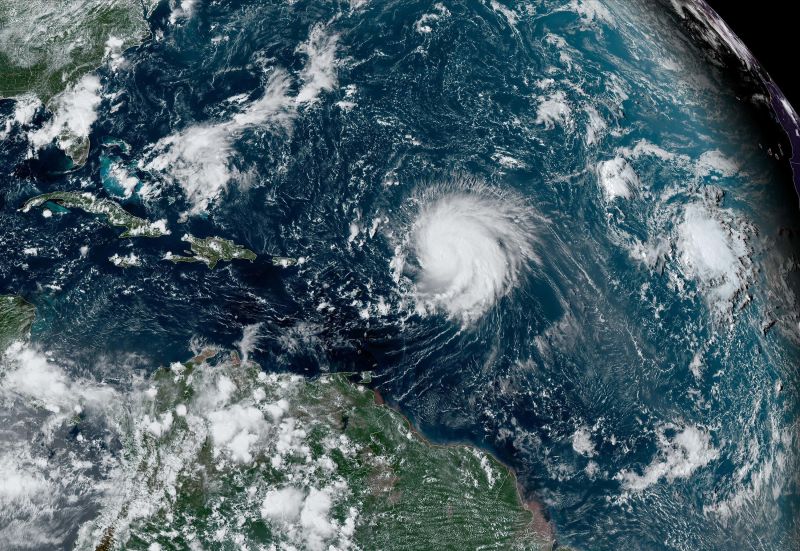US military shoots down Houthi drones as Trump’s strikes against terrorist group continue
Global ocean heat has hit a new record every single day for the last year


The world’s oceans have now experienced an entire year of unprecedented heat, with a new temperature record broken every day, new data shows.
Global ocean surface temperatures started breaking daily records in mid-March last year, according to data from the National Oceanic and Atmospheric Administration (NOAA) and the University of Maine’s Climate Reanalyzer, fueling concerns for marine life and extreme weather across the planet.
“The amplitude by which previous sea surface temperature records were beaten in 2023, and now again in 2024, is remarkable,” said Joel Hirschi, associate head of marine systems modeling at the National Oceanography Centre in the UK.
Scientists have said ocean heat is being supercharged by human-caused global warming, boosted by El Niño, a natural climate pattern marked by higher-than-average ocean temperatures.
The main consequences are on marine life and global weather. Global ocean warmth can add more power to hurricanes and other extreme weather events, including scorching heat waves and intense rainfall.
High ocean temperatures are already proving catastrophic for coral. Australia’s Great Barrier Reef is experiencing its seventh mass bleaching event, authorities announced in March following aerial surveys.
Bleaching occurs when heat-stressed corals release the algae that live in their tissue and provide their food source. If ocean temperatures remain too high for too long, the coral can starve and die.
Data from NOAA’s Coral Reef Watch tool shows that the problem goes well beyond Australia, and that the world could face a fourth global mass coral bleaching event in the next few months.
Ocean heat sets the stage for more ferocious hurricanes. “The warmer the ocean, the more energy to fuel storms is available,” said Karina von Schuckmann, an oceanographer at Mercator Ocean International in France.
Temperatures have been unprecedented in the North Atlantic, an area of ocean key to hurricane formation, surprising some scientists, who are still trying to unpick the exact causes.
If very high ocean temperatures continue into the second half of 2024 and a La Niña event develops — El Niño’s counterpart that tends to amplify Atlantic hurricane season — “this would increase the risk of a very active hurricane season,” Hirschi said.
El Niño is weakening and predicted to dissipate over the next few months, which could level off the record ocean temperatures, especially if the cooling effects of La Niña replace it.
“In the past, surface temperature values have decreased after the passage of El Niño,” Schuckmann said. But, she added, it’s currently impossible to predict when ocean heat will drop below record levels.
While natural climate variability will cause ocean temperatures to fluctuate, over the long term, NOAA’s Johnson said, we should expect them to “continue to break records as long as greenhouse gas concentrations in the atmosphere continue to rise.”











